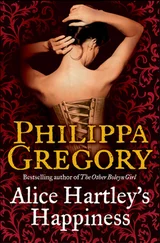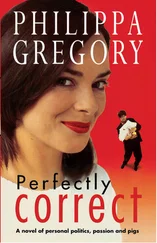He shook his head like a stunned prize fighter.
‘Miss Beatrice!’ he said. ‘This isn’t like you. It’s not your voice that could say these things. You were always for the old ways. The good ways when men and Master worked alongside and men were paid fair and had a little land, and a day off, and kept their pride.’
I nodded. ‘Yes, I was,’ I said. ‘But the world is changing, and I have to change too.’
‘That’s the Quality!’ he exclaimed with sudden bitterness. ‘Never say, “Aye, I did it. I want more money and I shall get it whatever the cost to the poor.” It’s always “the way of the world”. But the way of the world is the way you, and the Quality like you, decide it should be, Miss Beatrice! All of you — landowners, squires, and lords — make the world the way you want it and then say, “I can’t help it, it’s the way of the world.” As if it were not you who decides how the world should be.’
I nodded, for he was right.
‘Well then, Bill Green, have it your way,’ I said coldly. ‘I chose that Wideacre should be wealthy. That my son and Miss Julia shall inherit. And if it costs you your mill, if it costs every life in Acre, then so be it.’
‘So be it,’ he muttered, as if he could not understand. He fumbled for his hat, his Sunday hat, and put it on his head. His glass of beer was growing flat and stale.
‘Good day, Miss Beatrice,’ he said like a man in a dream, a dream of misery.
‘Good day, Miller Green,’ I said, honouring him with the title he would not keep long.
He walked from my office like a man half dead. Soundless, speechless, incredulous.
His dappled grey mare was hitched outside, and he heaved himself into the saddle, still in his dream. I saw him ride past the window and saw John call out to him as he and Celia came through the gate into the rose garden. Miller Green tipped his hat instinctively at the sound of a Quality accent, but I doubt he heard or saw anything. His horse ambled down the drive on a loose rein, the stocky rider slumped in the saddle. He had tragic news to take home. There would be tears in the pretty sunny parlour of the mill this afternoon, and dinner would be spoiled.
John and Celia dawdled at toddler pace through the rose garden and then walked to the terrace up to my office window, Celia pausing to see that Nurse had Julia’s hand over the sharp stones of gravel.
‘What did Miller Green want?’ asked John through the open window, as if it were his business.
‘Arrangements for the harvest dinner,’ I said blandly.
‘He came all this way, on a Sunday, to plan a dinner his wife has organized for years?’ asked John in his most sceptical voice.
‘Yes,’ I said, and added cruelly, ‘I said Celia would make all the arrangements.’
Celia jumped as if she had been pricked with a pig-sticker and I could not conceal the gleam of my amusement. ‘Set it in hand will you Celia? You know so much about the village these days. It should be about three weeks on Saturday. That should be nearly the right time. A day or so here or there makes little odds as long as there is enough fresh food for eighty or a hundred people, and it keeps fresh.’ She looked utterly aghast, and I could not repress a short spiteful laugh.
‘Excuse me, I have work to do,’ I said to the two of them. And I leaned forward and banged the casement shut in their faces. John’s eyes met mine through the glass. But even he seemed so very far away.
I had been right when I predicted a good crop. But wrong when I thought it would be reaped in three weeks. Even with a hot, hot sun that made midday work a torment, and an extra reaping band from the Chichester parish, it was the second week in August before we were done.
My heart should have been singing. It was a wonderful harvest. We started on the newly enclosed common fields and the reapers marched in a great wide sweep, up and down, up and down, the three gentle slopes of the levelled field. Wave on wave of greeny-golden, sound, dry corn rippled down before them. In the mornings of the first days, now and then, a voice would start a song, forgetting, in the pleasure of the smell of the ripe corn, in the crackle of the dry stalks, in the rhythm of the line, that this wealth and beauty were not, this year, a promise of a safe hunger-free winter.
‘I love to hear them sing,’ said Harry, reining in beside me after he had been for a ride on the downs. I had been all day in the field. I trusted this crop, which could save Wideacre, to no other.
I smiled. ‘So do I,’ I said. ‘They keep time better and the work goes faster.’
‘I might take a sickle out myself,’ said Harry. ‘It’s years since I went reaping.’
‘Not today,’ I cautioned him. ‘Not on this field.’
‘As you wish,’ he said, dense as ever. ‘Shall we wait for you at dinnertime?’
‘No,’ I said. ‘Tell them to leave something for me in my office. I may well stay over their dinner break to see they are back to work promptly after they have eaten.’
Harry nodded and wheeled away. As his horse passed the reapers who had reached the end of the field he pulled up to watch them straightening their backs, with a grimace from those who were crooked with rheumatism. They cleaned their sickles with weary sad faces, and fell into line again like pressed infantrymen. Harry cried a cheery ‘Good day! Good harvesting!’ to them. I doubt very much that he noticed no one replied.
They worked until noon and still the field was barely half cut. They were not going slow — I would have been on to that in a flash and they knew it. And they were too unused to the idea that this harvest would profit them not at all to cheat on the work. They still loved the great pale forest of wheat as I did, and they swung along in a steady easy river of movement expressing their joy in the great fertility of the land in every purposeful, painful swing. But still the field waved high. It was so huge! Only now, when I saw the gang reaping and reaping for half a day, did I realize what a massive acreage I had laid to wheat, and what a triumph this wheat harvest was.
The women and the children and the old folk followed the reapers, clasping great heaps of wheat to their bodies, banging the stalks against their knees and twisting a plait of wheat around to make a tight heavy-headed stook. The women had fewer illusions than the men about this explosion of fertility from the new field, and I watched them like a covetous hawk as they snapped off the odd head of wheat and stuffed it into their apron pockets. Poor beggars! Turning their backs to me that I should not see them pocket the traditional favours of the harvest. Gazing around with innocent-seeming, sly eyes and dropping a few stalks of wheat to the ground so that one of them, not even the culprit, might have some good gleaning later.
It was the tradition, always had been the tradition, that the gleaning at Wideacre was generous. The land grew so rich, the crops so tall, that no Squire had ever done more than smilingly grumble at the rituals of the informal robbery.
But now it was different.
It had to be different.
I waited until the little children had come down the lane with the pitchers of ale and the hunks of bread and cheese for their parents’ dinners. This year I saw the bread was greyer than it should be, made with as little flour as possible eked out with powdered pease or grated turnip. There was no cheese for anyone. And the pitchers held only water. These men and women were working under a burning July sun with only a hunk of grey bread to eat, and water to drink. No wonder they looked pale beneath the grime and the sweat. No wonder the dinner break was no longer a time for laughter and jokes and sharing of gossip and baccy. They were smoking hawthorn leaves in their pipes. And when they laid back to doze, the younger men put their hands behind their heads and stared silently at the sky as if they longed to see a future there that might free them from this unending round of poor drudgery.
Читать дальше
Конец ознакомительного отрывка
Купить книгу












